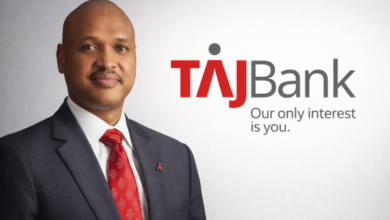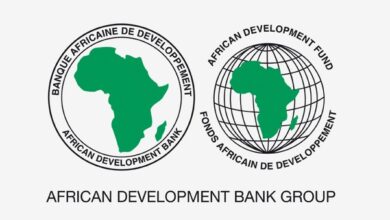IMF Charges Nigeria 1.5% Interest Rate on $3.4 Billion Loan
 The International Monetary Fund (IMF) has said that the $3.4 billion credit facility being requested by the Nigerian government attracts a 1.5% interest rate.
The International Monetary Fund (IMF) has said that the $3.4 billion credit facility being requested by the Nigerian government attracts a 1.5% interest rate.
The request according to the IMF managing director, Kristalina Georgieva, was made under the fund’s rapid financing instrument.
The minister of finance, budget and national planning, Zainab Ahmed while listing the government’s economic stimulus package said the government would request for assistance under the rapid credit facility (RCF) which would not be attached to any conditionalities.
READ ALSO: Banks’ e-payment Incomes rise by 64% in 2019
The IMF’s rapid financing instrument is a short-term facility that typically bears interest while the rapid credit facility is a long-term, zero-interest facility designed for poor countries.
“Nigeria’s economy is being threatened by the twin shocks of the COVID-19 pandemic and the associated sharp fall in international oil prices,” a statement by the IMF on Tuesday read.
“President Buhari’s administration is taking a number of measures aimed at containing the spread of the virus and its impact, including by swiftly releasing contingency funds to Nigeria’s Center for Disease Control and working on an economic stimulus package that will help provide relief for households and businesses impacted by the downturn.
“To support these efforts, Nigeria’s government has requested financial assistance under the fund’s rapid financing instrument (RFI).
“This emergency financing would allow the government to address additional and urgent balance of payments needs and support policies that would make it possible to direct funds for priority health expenditures and protect the most vulnerable people and firms.
“We are working hard to respond to this request so that a proposal can be considered by the IMF’s executive board as soon as possible.”
In total, the Nigerian government is requesting for $6.9 billion from the World Bank, International Monetary Fund and African Development Bank.
Juliet Ekwebelam












